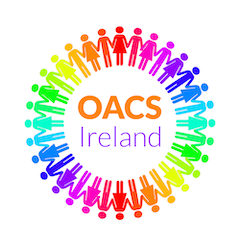Minister for Health to establish inquiry into historical licensing & use of Sodium Valproate in pregnancy.
OACS Ireland and Epilepsy Ireland have welcomed today’s announcement by Minister Stephen Donnelly that he will establish an inquiry into the historical licensing and use of Sodium Valproate (Epilim) in pregnancy.
The Minister outlined his commitment to both patient organisations at a meeting on Monday.
Sodium Valproate is a commonly used epilepsy drug which was first licensed in 1975 in Ireland. However, from the late 1960’s onwards, evidence was emerging about the teratogenic effects the drug could have if prescribed in pregnancy. However, it was not until 2014 and again in 2018 that the state took meaningful measures to ensure that women and families were fully informed on the impact the drug could have and to reduce the risks of children being exposed to valproate in the womb. Since 2018, valproate is contraindicated in pregnancy and should not be prescribed to girls and women of childbearing potential unless other treatments are ineffective.
Up to 40% of children exposed to valproate in-utero will experience neurodevelopmental disabilities while 10% of children will be born with congenital malformations. A HSE Rapid Review report in 2018 estimates that 1,250 children have been affected by valproate since 1975 in Ireland.
Epilepsy Ireland and OACS Ireland have campaigned since 2017 for strengthened risk minimisation measures, for an inquiry into the historical use of the drug and for improved services for children and families affected.
OACS Ireland Chairperson, Karen Keely, welcomed the announcement, commenting,
“We very much welcome the commitment from the Minister on the holding of an inquiry for families impacted by sodium valproate. For years, OACS Ireland have campaigned for the opportunity to be heard by our own state in the same way that our colleagues in the UK and France have been heard. OACS Ireland members have been caring for children with lifelong disabilities – many of which could have been avoided if families had been given the full and correct information about the potential impacts of this drug. We deserve for our voices to be heard; for our stories to be told and for our country to listen to what happened to us. The Minister’s commitment to an inquiry finally presents a pathway for this to happen.
“We acknowledge that the Minister has stated that he would like to assess a number of different options on what form an inquiry should take. The Minister has noted that it is important that any inquiry is done right; is cognisant of the information that is already widely available; and is done in a timely manner. However, the Minister was also clear that testimony from families affected would be central to any process and that OACS Ireland and Epilepsy Ireland would be fully consulted on what form the inquiry will take. We look forward to working with the Minister on the detail of establishing the inquiry. This must happen without delay as families have already been waiting too long for answers.”
In addition to an enquiry, commitments were also given by the Minister at yesterday’s meeting in relation to further improving measures to minimise risks for patients currently taking the drug. There are approximately 1,600 women aged 16-44 currently taking valproate in Ireland. Recent data suggests that many women are still not aware of the risks involved and that only a minority of patients are having the mandatory annual reviews or signed up to the Pregnancy Prevention Programme. The Minister has committed to establishing a clinical review of the current risk minimisation measures in conjunction with the office of the Chief Clinical Officer. He also confirmed that four new Epilepsy Specialist Nurse Posts and a consultant post, approved in 2018 would be prioritised for recruitment by HSE.
Epilepsy Ireland CEO, Peter Murphy commented, “We welcome the Minister’s commitment to all the issues discussed at our meeting, including the need to increase capacity within the HSE epilepsy service. With hundreds of valproate patients currently managed through primary care now requiring annual specialist reviews, it is essential that these posts are filled as soon as possible if we are to see a real improvement in our national response to valproate risk minimisation. As well as looking to what has happened in the past, we also need to ensure that no family is impacted in the future and that those who are impacted, get the support and services they require.
“We hope that the Minister will also implement our recommendation that a Valproate Stakeholder group is established to facilitate greater co-ordination between state bodies who have responsibility for valproate risk minimisation including the HSE, HPRA, PSI and other stakeholders such as patient groups and professional bodies. We look forward to working collectively and in collaboration with the Minister and all other relevant stakeholders so we can address all the issues which surround this most important matter.”
ENDS
For further information on Sodium Valproate click HERE.
* Women and girls should not stop taking valproate without first discussing it with their doctor. More information can be found at www.epilepsy.ie or by calling Epilepsy Ireland at 01 4557500. OACS Ireland can be contacted via www.oacsireland.com.


I take epilim for my epilepsy and I was on it while I was pregnant in fact my dose was increased not decreased I had trust in the doctor so didn’t question him my son was born in 2001 and was diagnosed with autism learning difficulties poor gross and motor skills he was around 4 when he was diagnosed he is 19 yrs now and it breaks my heart to think it could if been avoided or if I wasn’t on epilim.
Hello Mary
Many thanks for getting in touch. Please contact info.oacsireland@gmail.com we are happy to help with any problem you may be facing on this issue.
OACS Ireland